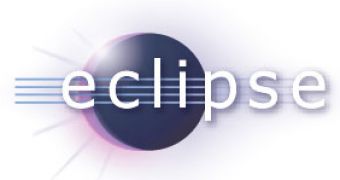Microsoft is pushing hard for the work designed to make Windows 7 play nice with the Eclipse open-source integrated development environment to be finalized by the summer of next year. Hard enough in fact that the Redmond company is ready to provide both funding and architectural guidance for a Tasktop Technologies project designed to make Windows 7 and Eclipse interoperability a reality. The two companies reveal that plans are in motion to make Microsoft’s latest iteration of the Windows client interoperable with the open-source Eclipse IDE by mid-2010.
“Windows 7 takes the desktop client to a new level of refinement and usability, and introduces new integration opportunities,” notes Mik Kersten, CEO of Tasktop Technologies and creator of the open-source Eclipse Mylyn project. “Our collaboration with Microsoft will benefit the Eclipse ecosystem by bringing the new features in Windows 7 to both the Eclipse IDE and to Eclipse-based desktop applications.”
Tasktop Technologies will be responsible for ensuring that Eclipse developers will be able to benefit from a greater degree of integration with the Windows 7 operating system. According to Microsoft, the Eclipse integrated development environment (IDE) will be updated and tailored to both Windows 7 and Window Server 2008 R2. Eclipse devs will not only enjoy Windows 7 integration, but will also be able to offer a similar user experience with Windows Vista’s successor for all desktop applications developed on the Eclipse platform.
The Redmond company notes that the Eclipse Standard Widget Toolkit will be the first to evolve, in terms of Windows 7 feature integration. The actual Eclipse GUI will be overhauled in order to fit the visual style of Windows 7’s Windows Aero. All enhancements to the Eclipse IDE produced by Tasktop will be released under the Eclipse Public License in the first quarter of 2010. The general release deadline for the Tasktop updates is synonymous with the official launch deadline of Eclipse Helios, namely June 2010.
“Eclipse is an open source community, whose projects are focused on building an open development platform comprised of extensible frameworks, tools and runtimes for building, deploying and managing software across the lifecycle. The Eclipse Foundation is a not-for-profit, member supported corporation that hosts the Eclipse projects and helps cultivate both an open source community and an ecosystem of complementary products and service,” reads an excerpt from the official Eclipse description.

























